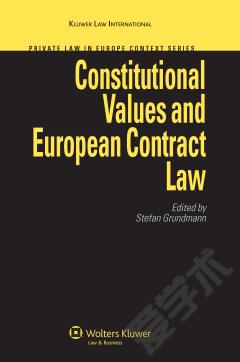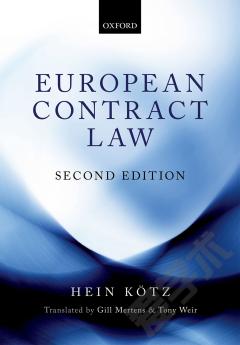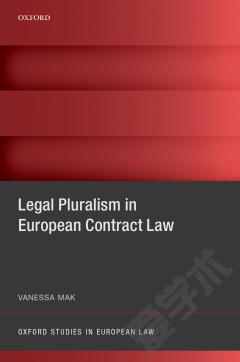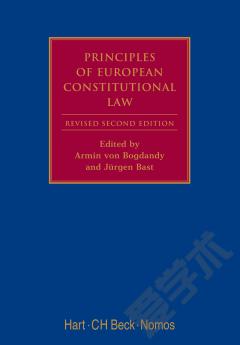European Administrative Law in the Constitutional Treaty
1 Legislative Powers and Normative Instruments I. INTRODUCTION II. LEGISLATIVE POWERS AND NORMATIVE INSTRUMENTS UNDER THE CURRENT TREATIES III. SIMPLIFICATION OF THE UNION'S NORMATIVE INSTRUMENTS AND THE TRANSFORMATION OF EUROPEAN ADMINISTRATIVE LAW IV. NEW NORMATIVE INSTRUMENTS UNDER THE CONSTITUTIONAL TREATY 1. Legislative Level: European Law and Framework Law 2. Delegated European Regulations (a) On Requirements and Limits (b) Mechanisms of Control 3. Implementing Acts (a) Areas where Implementing Acts might be Used (b) The Form and Mechanism for the Control of Implementing Acts V. A THIRD TYPE OF EUROPEAN REGULATION 1. Competition Policy 2. State Aids 3. Economic and Monetary Policy 4. Area of Freedom, Security and Justice VI. THE CHOICE BETWEEN PRIMARY LAW AND SECONDARY LAW: CONSEQUENCES 2 Implications of a Binding European Charter of Fundamental Rights for the Individual Decisions Made by the European Public Administration I. INTRODUCTION II. THE RIGHT TO GOOD ADMINISTRATION 1. Origin of the Right to Good Administration in Community Law 2. Content of the Right to Good Administration 3. Implications of a Binding Right to Good Administration for the Community Administration III. THE RIGHT OF ACCESS TO DOCUMENTS 1. Origin of the Right of Access to Documents 2. The Current Meaning of the Right of Access to Documents (a) Which Bodies are under an Obligation to Provide Access to their Documents? (b) Who Can Access Institutions' and Bodies'Documents? (c) Judicial Protection of the Right of Access to Documents 3. Implications of a Binding European Charter of Fundamental Rights for the Right of Access to Documents IV. THE RIGHT TO PROTECTION OF PERSONAL DATA 1. Its Origins in EU Law 2. Scope of the Right to Protection of Personal Data (a) The Rundfunk Case (b) The Lundqvist Case (c) The PNR Case 3. Personal Data Protection in the Charter and in the Constitutional Treaty (a) Introduction (b) Implications 3 The Impact of the Charter of Fundamental Rights on Decisions Adopted by Member States I. FUNDAMENTAL RIGHTS OF THE UNION AND MEMBER STATES: WHAT DOES 'IMPLEMENT'MEAN? 1. General Considerations: The Relevance of the Topic 2. Subjecting National Administration to the Fundamental Rights of the Union (a) Case Law on the Application of Fundamental Rights of the Union to Member States (b) The Formula in Article 51 (1) of the Charter: Subjecting Member States to Community Fundamental Rights 'only when they are implementing Union law' 3. A Theory of the Concept of Implementing EU Law from the Perspective of the Protection of Fundamental Rights against the Acts of Member States II. THE RIGHTS TO GOOD ADMINISTRATION,ACCESS TO DOCUMENTS AND PROTECTION OF PERSONAL DATA: EFFECTS OF RECOGNITION IN NATIONAL LEGAL SYSTEMS 1. A Preliminary Question 2. The Field of Application of the Right to Protection of Personal Data, Access to Documents and Good Administration (a) The Right to Good Administration (b) The Right of Access to Documents (c) The Right to Protection of Personal Data III. FUNDAMENTAL RIGHTS OF THE EUROPEAN UNION AND MEMBER STATES: THE CASE OF STRUCTURAL FUNDS IV. CONCLUSION 4 Towards a Law on Administrative Procedure I. AN OLD ISSUE REVISITED:WHY NOW A EUROPEAN LAW ON A COMMON ADMINISTRATIVE PROCEDURE? 1. General Considerations 2. A Public Administration without a Law of Administrative Procedure (a) Separated Procedural Norms in Primary and Secondary Law (b) Shaping of the General Principles of Administrative Procedure by the Court of Justice 3. New Arguments for the Creation of a Law on Administrative Procedure II. CODIFYING EUROPEAN ADMINISTRATIVE PROCEDURE 1. Legal Foundation (a) Formal Basis: Article III-398 of the Treaty establishing a Constitution for Europe (b) Substantive Basis: The Right to Good Administration as a Binding Fundamental Right and the Principles of Democracy and Legality 2. Content: Putting the Individual at the Centre of Procedure (a) Prior Considerations: A Law of General Principles or a Law of Particulars? A Law on European Administrative Procedure or a Law of European Administrative Procedures? (b) General Considerations regarding the Content of the Law on European Administrative Procedure (c) The Development and Guarantee of the Rights of the Parties in Procedure (d) The Rise of Transparency, Impartiality, Equality and Legal Certainty (e) The Strengthening of Participation Rights: Towards a More Democratic and Open European Administration III. CONCLUSION 5 Judicial Protection I. INTRODUCTION II. THE RULE OF STANDING AND THE RIGHT TO EFFECTIVE JUDICIAL PROTECTION 1. Brief Description of the Current Rule of Standing found in Article 230(4) of the EC 2. UPA and Jego-Quere Cases and the Gaps in Judicial Protection in the Union 3. Modifications to the Rule of Standing of Private Parties Introduced by the Constitutional Treaty 4. Modificatio
{{comment.content}}








 京公网安备 11010802027623号
京公网安备 11010802027623号